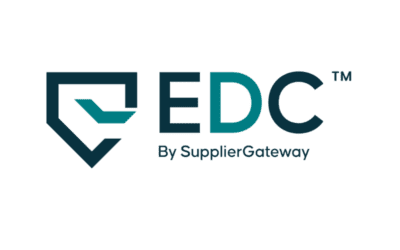
The sixth and final step to starting your supplier diversity program from scratch is establishing your organization’s inclusive procurement practices. This last step should be a snap if you’ve followed our guidelines for defining your supplier diversity program and creating your supplier diversity policy. These previously created documents are what you need in order to inform your inclusive procurement practices going forward.
Establishing your organization’s inclusive procurement practices can be outlined in four easy-to-understand steps:
- Identify which groups of diverse suppliers you’ll work with;
- Create policies that require procurement to include diverse suppliers in all bids and RFPs;
- Track inclusiveness in your RFP process;
- Measure non-diverse Tier 1 suppliers based on their Tier 2 spend with diverse suppliers.
Let’s break each of those steps down.
Identify which groups of diverse suppliers you’ll work with
Identifying which groups of diverse suppliers your organization will work with is one of the most important steps when defining your program. This portion directly informs how your organization will incorporate diversity into its procurement practices. If you’re here with us now, you probably already defined these groups back in step two or three.
Remember, the following groups are all classified as diverse:
- Women
- Persons with disabilities
- Minorities (US, or where a minority group is recognized by a country’s government) including:
- Native American
- African American
- Asian American
- Hispanic American
- Veterans and military-service-disabled veterans
- People who are lesbian, gay, bisexual, or transgender
Best practice indicates that businesses that are diverse should be at least 51% diverse owned, and that they should have a certification attesting to their diversity. For a refresher on diversity certifications and requirements, check out this article.
Incorporating local and small businesses into your normal procurement practices can also prove very impactful, both for the local economy and for your organization. Along with diverse businesses, small and local businesses are often more innovative, more responsive to the specific needs of your business, and can often help you get your products/services to market more quickly.
Create policies that Require Procurement to Include Diverse Suppliers in All Bids and RFPs
Inclusive procurement is a business strategy that supports the purchase of goods and services from diverse businesses (encompassing minority-owned and historically underutilized businesses) in order to advance social and economic development. Creating policies that require procurement and RFP processes to be inclusive ensures that your organization’s DEI initiatives are met.
These procurement policies should be based on your company’s documents that define your supplier diversity program and overall supplier diversity program policy.
Specifically, your procurement policy’s considerations and requirements section should include guidelines for engaging diverse suppliers. According to CAPLAW, this section should resemble the following:
“Minority Owned, Women Owned, and Small Business Vendors. X Organization is committed to taking all necessary affirmative steps to assure that minority business, women’s business enterprises and labor surplus area firms (‘MWSB Vendors’) are used whenever possible.
Such steps include:
- Placing qualified MWSB Vendors on solicitation lists;
- Soliciting MWSB Vendors whenever they are potential sources;
iii. Dividing total requirements, when economically feasible, into smaller tasks or quantities to permit maximum participation by MWSB Vendors;
- Establishing delivery schedules, where requirement permits, which encourage participation by MWSB Vendors;
- Using services and assistance, as appropriate, of such organizations as Small Business Administration and the Minority Business Development Agency of the Department of Commerce; and
- Requiring the prime contractor, if subcontracts used, to take affirmative steps listed in paragraphs (i) through (v) of this section.”
Of course, your company’s procurement policy will look different depending on your locality and other considerations. The above is meant to act as a starting point for including an area in your procurement policy that specifically addresses engaging diverse suppliers.
Track Inclusiveness in Your RFP Processes
Inclusiveness should always be tracked, regardless if the company you decide to ultimately award a contract to is diverse, small, or local. When tracking inclusiveness in your RFP processes, you should be tracking the following KPIs:
- How many diverse/local/small businesses were contacted;
- How many of those businesses submitted an RFP;
- How many of those businesses won their RFP;
- What the contracts won were worth.
Measure Non-Diverse Tier 1 Suppliers Based on Their Tier 2 Spend with Diverse Suppliers
While some of your Tier 1 suppliers may not classify as diverse, chances are they contract with diverse companies. Measuring how your Tier 1 suppliers engage with diverse suppliers themselves offers another opportunity for your organization to effectively diversify your supply chain.
As more and more companies consolidate their supply chains, it becomes more difficult for smaller diverse suppliers to gain contracts as Tier 1 suppliers. According to the CGLCC, ensuring your organization has a robust Tier 2 program that encourages and contracts Tier 1 suppliers to institute their own diversity programs creates significant opportunities for smaller minority-owned businesses.
———————————–
About SupplierGateway:
Is your organization ready to simultaneously simplify and expand its supplier diversity program? Tracking, reporting, and scaling are second-nature with SupplierGateway’s easy-to-use, all-in-one Supplier Diversity Platform. Quickly connect with diverse suppliers through our vast network of diversity-certified organizations and scale your diversity spending fast.
From Fortune 100 programs to local municipal initiatives, SupplierGateway’s cloud-based, instant-on, affordable solutions save your organization time, money, and energy. At $12,500/year, our platform price beats the cost of dedicated IT or procurement staff.
For more information, click here.












